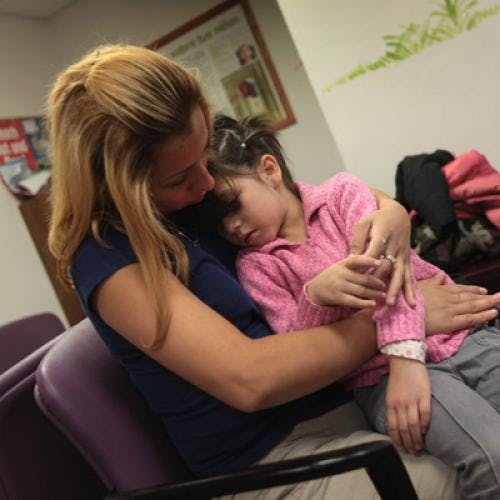
As long as government responds to all unmarried women and fatherless children with one program AFDC-welfare cannot be fundamentally reformed. Poor divorced mothers need help to survive the end of a marriage, but they usually stay on AFDC a short time, and such help can be supplied by states with only modest federal assistance or direction.
Unmarried teenage moms, by contrast, are the heart of the underclass problem, bearing children who never have a father and who sometimes spend a lifetime on welfare. Since the crisis of the underclass affects the entire nation, substantial federal assistance, if only modest federal direction, is needed.
In an ideal world, AFDC would not exist. There would be instead three different programs run by different state agencies and receiving differing amounts of federal support. It might look something like this:
The Program in Child Development would offer cash, Food Stamps and medical care to unmarried mothers under 18. Administered by each state’s department of child services, not a welfare agency, it would require, as a condition of aid, that the teenager live with her child in a group home or family shelter. The shelter, administered by a church or private organization, would supply parental instruction, supervise childcare, ban alcohol or drug use, and insist that each mother complete high school. Men who father the children of underage mothers would, when identified, be offered a choice between marrying the mother or facing prosecution for statutory rape. The Program in Child Development would concentrate federal dollars on those mothers and children likely to spend lifetimes on welfare, and it would supply serious parental instruction free of a mandatory work requirement.
The Program in Parent Training would serve women age 18 and older who apply to it because they have had a child and lack a husband. Like the Program in Child Development, it would be run by a state’s department of child services. It would supply not only cash, Food Stamps and medical care but also a housing allowance. As a condition of receiving this aid, each mother would be required to receive regular home visits and parent-training sessions and to take available jobs provided adequate daycare was available for the child. Women would be eligible for three years of such aid, but no more.
The Program in Maternal Assistance would aid mothers who, though once married, have lost their husbands to death, desertion or divorce. It would be run by a state’s employment service and consist of financial aid accompanied by a job training and job placement program. Its beneficiaries would be women hurt by temporary adversity, who now stay on AFDC for only a short time. Their plight would be clearly and bureaucratically separate from teenage illegitimacy.
Each of the three programs would have its own separate financing. Other than setting general rules, no program would receive any detailed federal guidance. The first would enjoy substantial federal financing but exclusively private management; the third would have the least federal financing and a mixture of public and private management.Periodically each state’s programs would be subject to external review by something like the Manpower Demonstration Research Corporation.
If we had today’s social problems but Aid to Families with Dependent Children had never existed, we would probably create something like this. Today, with AFDC, we are fighting over how to “fix” a program with diverse and incompatible ends. I doubt we can.
James Q. Wilson is author of The Moral Sense (The Free Press). This article appeared in the August 12, 1996 issue of the magazine.